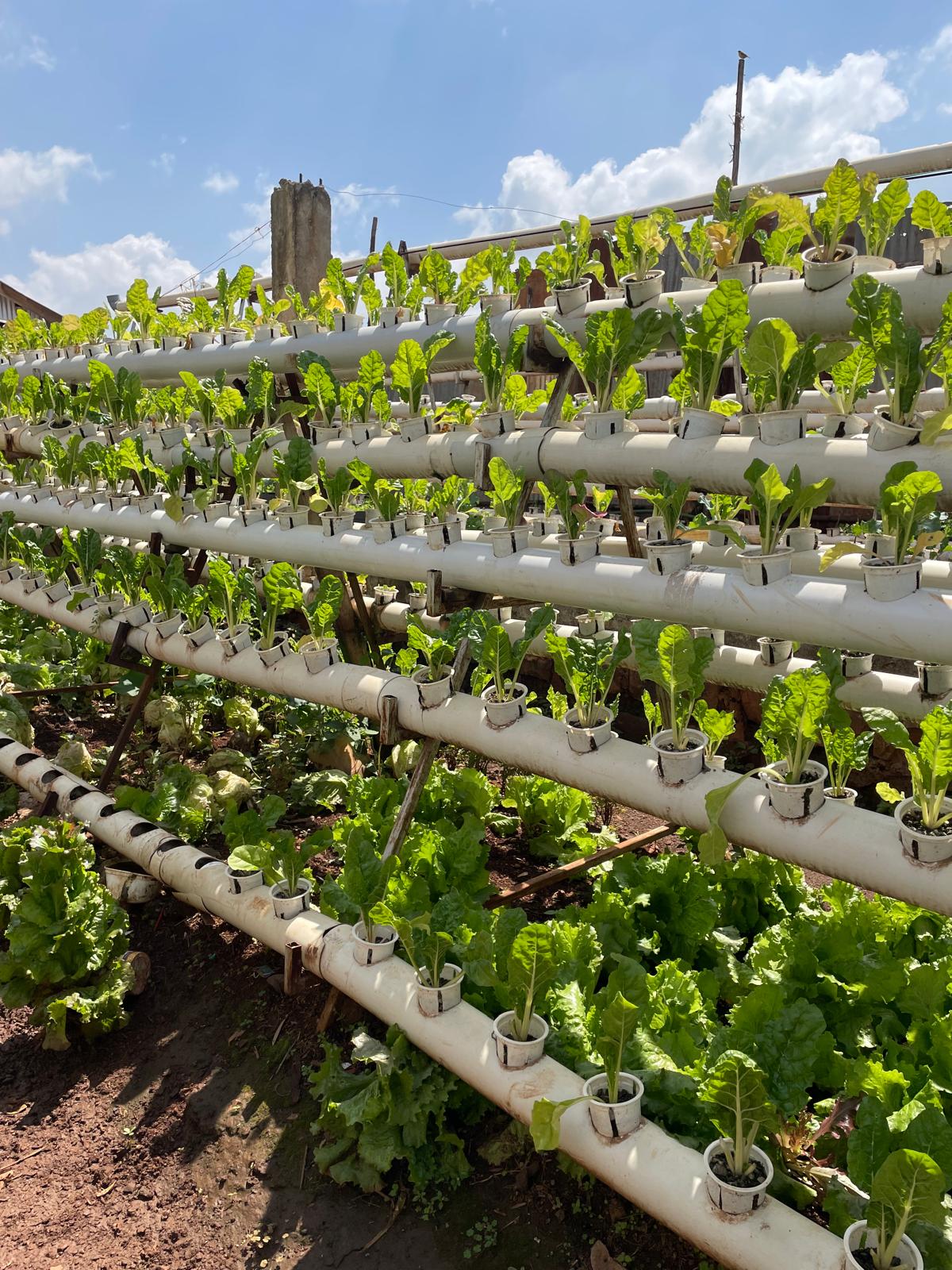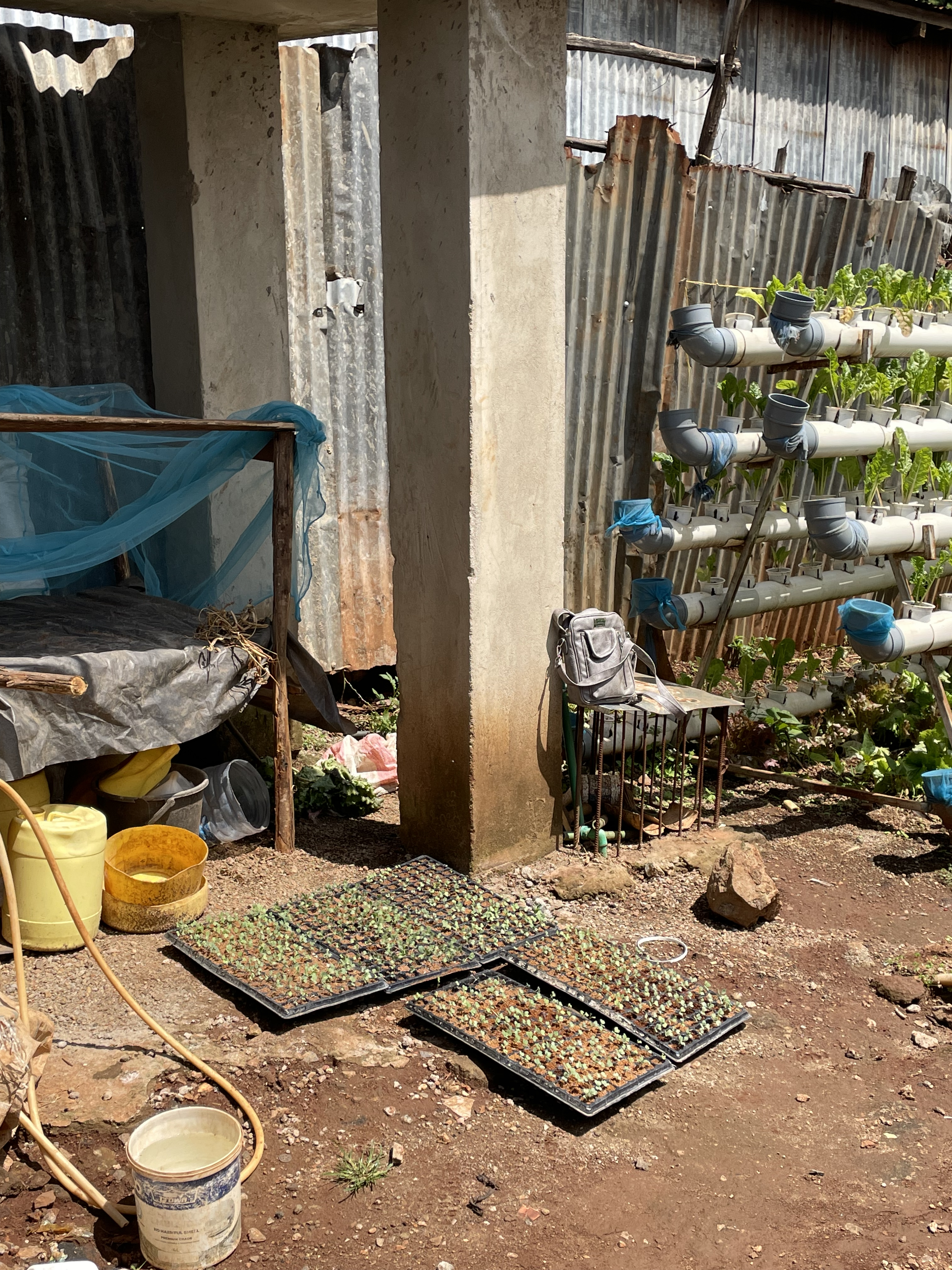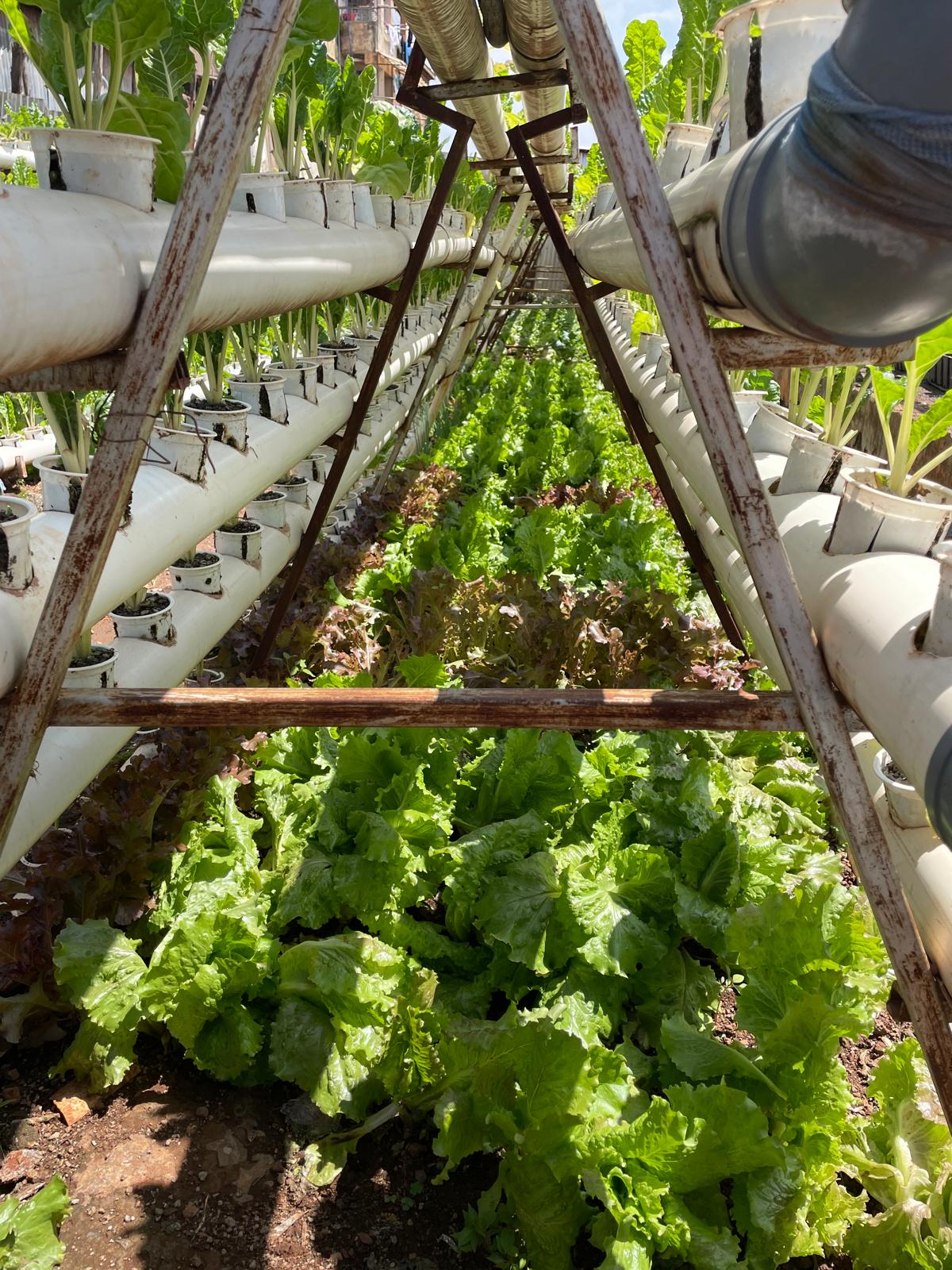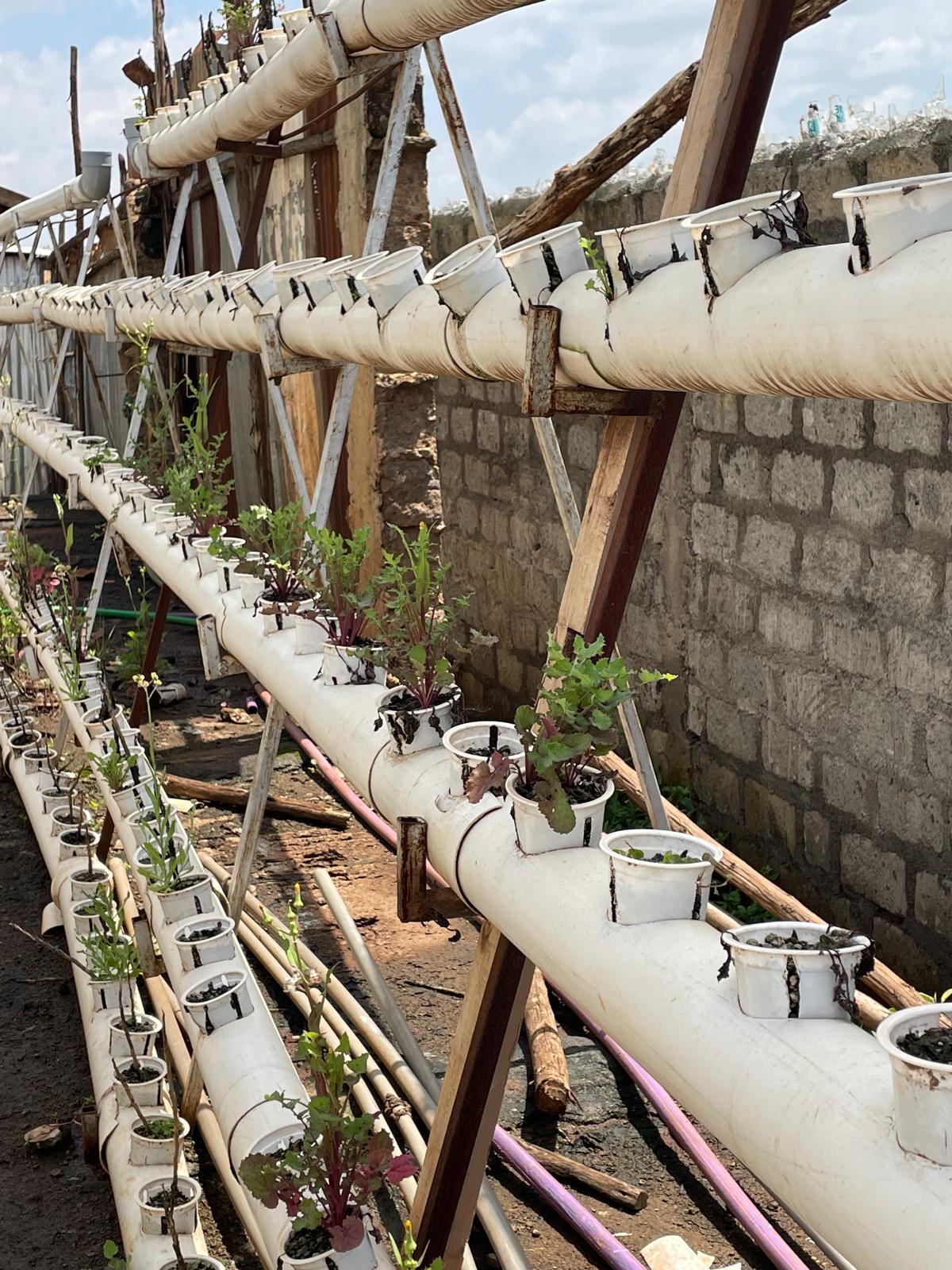GROWING HOPE: Nairobi's innovative hydroponics farming in the slums
Victor Edalia turns dumping site into productive hydroponics farm in the Kibera slums of Nairobi
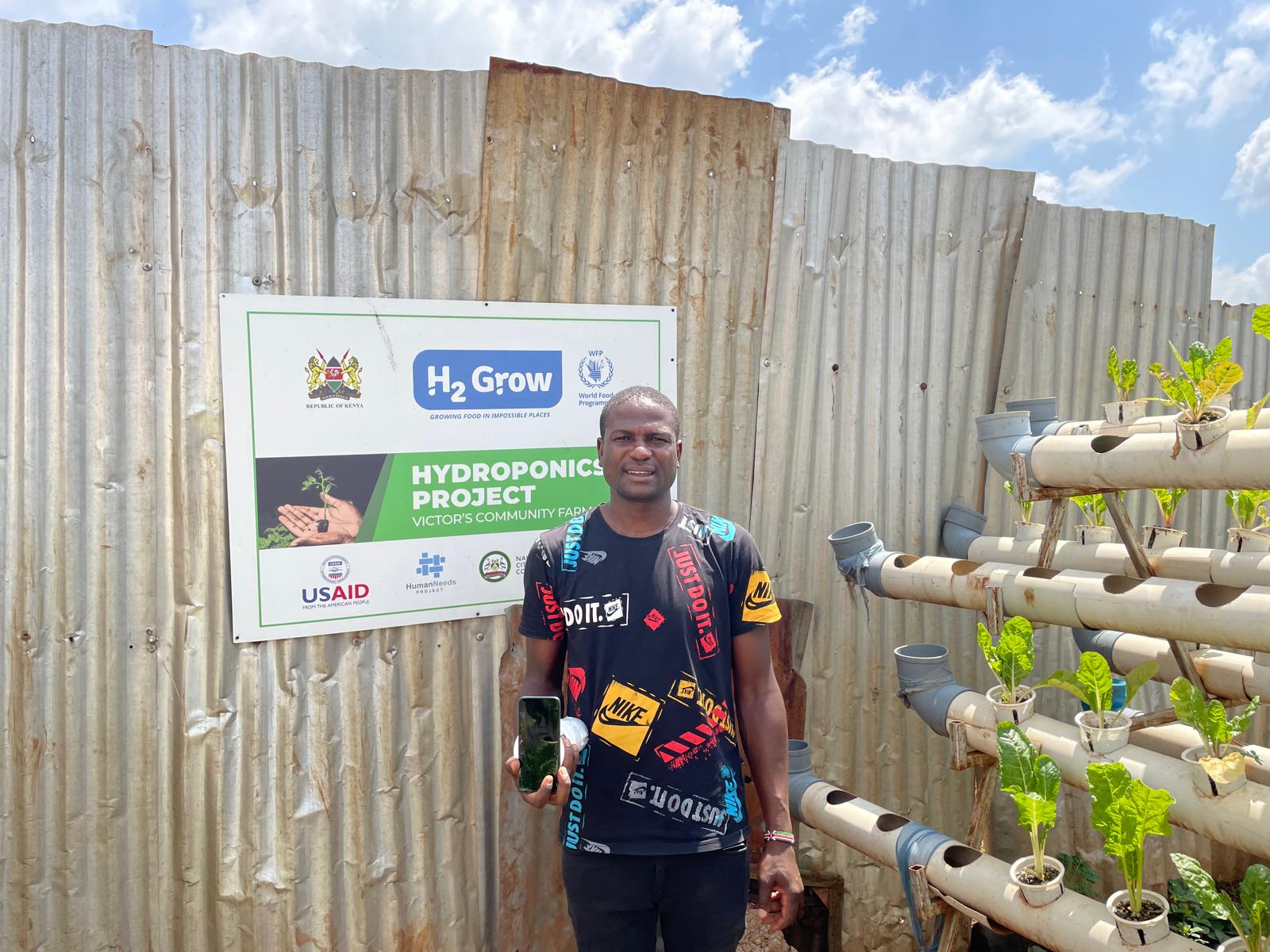
Few months ago, doing some research, I ran across an article about a Kenyan farmer who transformed a dumping site into a productive hydroponics veggie garden. After establishing contact, we met and I had the chance to learn first-hand about this wonderful project!
Victor Edalia Mukolwe, an urban farmer born and raised in the slums of Kibera, discusses the challenges of unemployment and the need to create opportunities for themselves. Frustrated with the issue of illegal dumping in the slums, Victor started a youth group which collected the garbage, aiming to create a cleaner environment for their community. After realizing that clearing dumping sites alone wasn't a sustainable solution, Victor proposed planting trees and eventually transitioned to farming as a more effective way to prevent re-dumping. Victor explains the transition to hydroponic farming, which allows for year-round cultivation, saves space, conserves water, and minimizes soil-borne diseases. During the pandemic, Victor distributed produce to vulnerable families in the community, supplementing government relief efforts with fresh vegetables. Victor shares his passion for cooking, developed through training from a professional chef, and expresses a desire to work as a cook in the future. In the interview, Victor discusses the challenges of sustaining the hydroponics farm financially, including the cost of nutrients and limited water supply. He plans to scale the project by
collaborating with other youth groups and exploring commercial opportunities like supplying produce to restaurants.
Victor's humanitarian efforts earned him recognition from the government, which granted him a lease for the land he uses for farming. He also shares his commitment to training other youth groups in hydroponic farming, aiming to change perceptions of farming and bring forward sustainable ways of growing.
To hear the interview click on this link. To help the cause you can donate through PayPal here: vicdalia647@gmail.com
Hydroponics, a type of horticulture, is a plant growing technique used for thousands of years, where nutrients are fed in the water where roots grow. In hydroponics (hydro, meaning water and ponos meaning labour,) water does all the work, soil is not needed. Weeding therefore is not necesarry, you have more space for plants and you save around 80 per cent more water. Why is this relevant right now? In erratic climate conditions, farming and growing crops becomes ever more difficult. This hydroponics solution is not suggested as a replacement to traditional agriculture, but as a safety net when it doesn't rain. According to FAO, agriculture is key to Kenya's economy “contributing 33 per cent” of the country’s (GDP), and employing “more than 40 per cent of the total population”.
